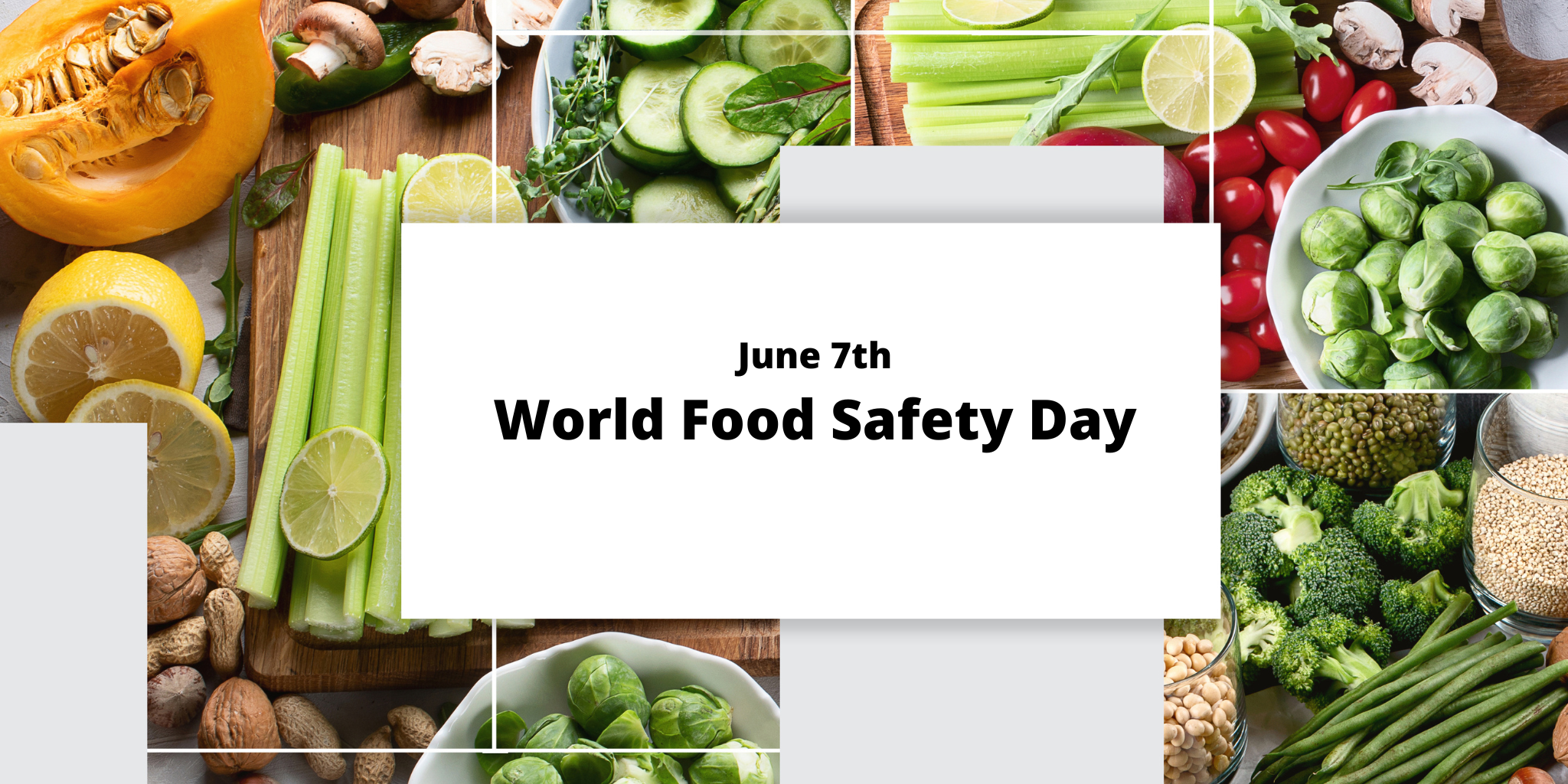June 7th, World Food Safety Day
- According to the World Health Organization (WHO) and the Food and Agriculture Organization of the United Nations (FAO), more than 200 diseases are caused by the consumption of unsafe food containing harmful bacteria, viruses, parasites or chemicals (as of 2021).
- Proper food preservation and handling helps to keep us healthy and avoid food poisoning, especially in summer, when viruses and bacteria find the ideal temperature to multiply.
- Based on data from the FAO report “The State of Food Security and Nutrition in the World 2021”: it is estimated that a total of 2.37 billion people in the world experience some level of food insecurity.
In the week of World Food Safety Day 2022, it is important to know what are the most common food hazards in the hot season and what are the necessary measures for a good and correct preservation and cooking of food in order to avoid food poisoning caused by viruses and toxic bacteria.
It is therefore important to contribute to ensuring Food Safety throughout the food chain from harvest to the table: processing, storage, distribution, purchase, preparation and consumption (both at home and abroad).
Poor preservation and handling of the food we eat could lead to the proliferation of pathogenic bacteria which, in turn, can cause us some discomfort.
Therefore, in order to take care of our health, it is important not only to handle, prepare and consume food correctly, but also to have hygienic materials and surfaces that help us to avoid food disorders caused by the high temperatures of the approaching summer season.
Harmful bacteria from raw or undercooked foods and contaminated beverages are the most common cause of eating disorders:
These eating disorders can lead to diseases such as Salmonellosis or E. coli infection. These types of pathologies cause symptoms ranging from simple stomach upset to more serious problems such as diarrhea, fever, vomiting, abdominal cramps and dehydration. The people most susceptible to these diseases are children, pregnant women, the elderly and individuals with weakened immune systems.
It is essential to pay attention to the proper preservation and cooking of food in order to keep it safe and thus avoid illnesses due to food contamination.
The Silestone Institute recommends 10 tips to ensure safe food and avoid food poisoning:
- When buying the product, examine the external appearance of the product by looking at its label, the information on its ingredients, storage conditions and expiration date.
- Never break the cold chain since at room temperature bacteria multiply. Keep foods that require refrigeration in coolers with cooler bags or ice cubes protected so that water does not drip and place them in the coolest place possible.
- Cook foods by prolonged treatment at high temperatures (frying, oven, stew, etc.) as these are the most effective sanitizing methods.
- Clean utensils and surfaces every time a different food is handled, remembering, in addition, that the hands of the handler are one more utensil to be sanitized.
- Prepare salads based on raw vegetables and sausages at the last moment, having washed them well at home (the most hygienic place to do it).
- Cook the omelet in advance so that it can be cooled and the egg can set well.
- Avoid sauces containing egg (if they are commercial, they should be consumed in a short period of time to avoid recontaminations).
- Keep dairy products and desserts made with egg cold until the last moment.
- In the refrigerator, separate raw products from cooked ones to avoid the possible transmission of microorganisms through cross-contamination. Do not mix utensils and containers used for one or the other.
- Choose countertops of non-porous composition that facilitate cleaning and disinfection, protect against stains and avoid possible filtrations that could be a source of contamination. In addition, hard, scratch-resistant surfaces prevent the creation of cracks or fissures that could lead to the proliferation of microbial colonies.
